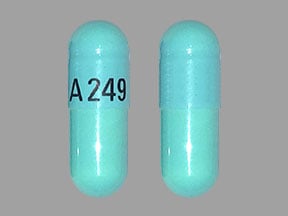
Doxycycline Hyclate Coupons & Savings Card – Discount Prices from $5.35
Generic for: Vibramycin, Doryx, Acticlate
My prescription
Edit
100MG, Doxycycline Hyclate (20 Capsules)
Select pharmacy

CVS
$19.47
COUPON PRICE
Walmart
$5.35
COUPON PRICE
Walgreens
$11.38
COUPON PRICE
Albertsons
$14.26
COUPON PRICEDoxycycline Hyclate savings card
Show this card to your pharmacist
Walmart
$5.35
BIN
ID
PCN
GRP
019876
LH8E3F4571
CHIPPO
LHX
Powered by
More prescriptions for urinary tract infection
More prescriptions for urinary tract infection
Price history for Vibramycin (brand) & Doxycycline Hyclate (generic)
20 Capsules, 100MG
Average retail price for Vibramycin
Average retail price for Doxycycline Hyclate
Average SaveHealth price for Doxycycline Hyclate
Our price history data is based on aggregated prescription data collected from participating pharmacies in America. Our prescription data updates daily to reflect the latest price changes. If you notice a missing data point, it means there wasn't sufficient data available to generate a monetary value for that date.
We analyzed Doxycycline Hyclate prices for (100MG, 20 Capsules) over the last 12 months. The average retail price was $37.20, while the average price using the SaveHealth discount card was $21.88. That's a savings of approximately 41.18% when using our Doxycycline Hyclate coupon.
Compared to the generic version, Vibramycin had an average price of $25.29 over the same time period. With the SaveHealth savings card, Doxycycline Hyclate is 13.48% cheaper on average than Vibramycin.
*Retail prices are based on pharmacy claims data, and may not be accurate when we don't have enough claims.
Doxycycline Hyclate dosage forms
Dosage Quantity Price from Per unit 50MG 20 Capsules $6.11 $0.30 50MG 30 Capsules $7.92 $0.26 50MG 60 Capsules $13.34 $0.22 50MG 90 Capsules $25.26 $0.28 50MG 180 Capsules $36.81 $0.20 100MG 20 Capsules $5.35 $0.27 100MG 14 Capsules $4.50 $0.32 100MG 28 Capsules $6.50 $0.23 100MG 30 Capsules $6.78 $0.23 100MG 60 Capsules $11.06 $0.18
| Dosage | Quantity | Price from | Per unit |
|---|---|---|---|
| 50MG | 20 Capsules | $6.11 | $0.30 |
| 50MG | 30 Capsules | $7.92 | $0.26 |
| 50MG | 60 Capsules | $13.34 | $0.22 |
| 50MG | 90 Capsules | $25.26 | $0.28 |
| 50MG | 180 Capsules | $36.81 | $0.20 |
| 100MG | 20 Capsules | $5.35 | $0.27 |
| 100MG | 14 Capsules | $4.50 | $0.32 |
| 100MG | 28 Capsules | $6.50 | $0.23 |
| 100MG | 30 Capsules | $6.78 | $0.23 |
| 100MG | 60 Capsules | $11.06 | $0.18 |
